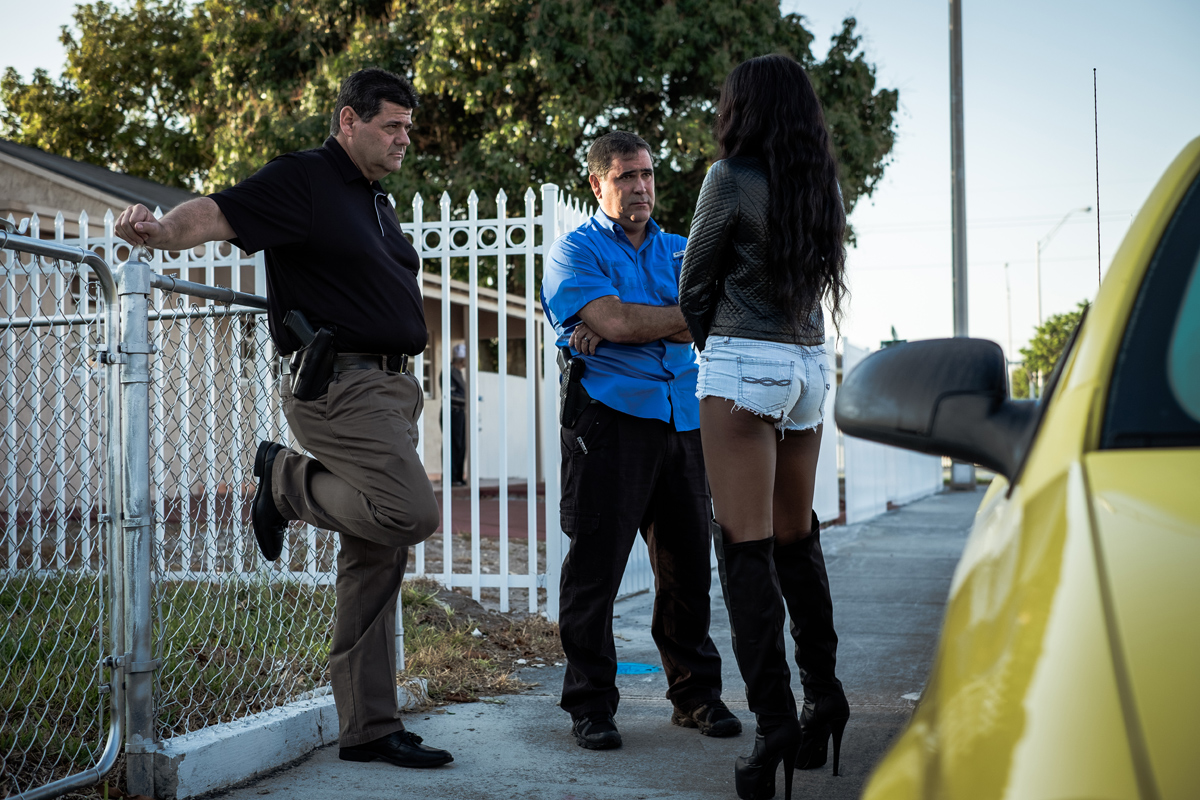By Trevor Aaronson
Florida Center for Investigative Reporting
The Florida Center for Investigative Reporting’s mission is to tell the stories that aren’t being told — to focus on public interest reporting that affects public policy and public life in the Sunshine State.
As a modestly funded 501(c)(3) nonprofit organization, FCIR isn’t here to cover breaking stories or to be a destination news site. Instead, working with news media partners, we focus on the important stories that we believe can have impact.
Here are six stories from 2015 that made a difference in Florida and beyond:
‘Climate Change’ Ban

(Photo: Flickr.)
FCIR broke the news that state officials in the administration of Gov. Rick Scott had been warned not to use the terms “climate change” and “global warming.” Our story — which ran in six Florida newspapers and on Florida’s NPR member stations, as well as NPR’s “Here and Now” program — found that the unwritten policy went into effect after Gov. Rick Scott took office in 2011.
News media from throughout the nation and the world followed up on Florida’s “climate change” ban. President Barack Obama and Secretary of State John Kerry each denounced the ban.
Larry Wilmore of Comedy Central’s Nightly Show joked: “Can’t we just ban the term ‘Rick Scott’?”
The editorial boards of Florida newspapers — including the Miami Herald, Orlando Sentinel, Sun Sentinel, Pensacola News Journal, Bradenton Herald and The Stuart News — criticized Scott’s “climate change” gag order.
Our reporting has continued. We found employees in various state agencies — including the departments of Health, Environmental Protection, and Transportation — who reported being told they couldn’t use “climate change” and “global warming” in reports or when interacting with the public.
FCIR conducted a year-by-year keyword analysis of reports, agendas, correspondence and other communications on DEP’s public website that showed a steep decline in the use of the term “climate change” after Scott took office. In 2010, Gov. Charlie Crist’s final year in office, DEP’s website hosted 20 documents that contained a total of 209 references to “climate change.” The next year, Scott’s first in office, the numbers dipped to 15 documents and 123 total references. The decline has continued throughout Scott’s term in office. Last year, for example, there were just 16 documents with a total of 34 references to “climate change.”
We explained the radically different approach the Florida Fish and Wildlife Conservation Commission takes to climate change, compared to the one taken by the state Department of Environmental Protection. FWC is actively trying to address and mitigate the effects of climate change on Florida’s fragile fisheries and wildlife areas. The state commission even has a page on its website titled “Climate Change 101.” The reason for this difference: FWC does not answer to the governor. The commission was created by voters in 1999 as an independent agency and is governed by an autonomous board.
Most recently, we noted that Florida didn’t have to become (once again) a national laughingstock. Not so long ago, Florida was a leader among states in addressing climate change — passing laws intended to prepare for the effects of our warming world. Those laws were rolled back in recent years as state employees were told not even to utter the words “climate change.”
Police Diversity in Florida

(Photo by John Van Beekum.)
FCIR found that the majority of Florida police departments in the state have significantly lower percentages of black police officers than they have blacks in the communities they serve. Some of Florida’s big cities have alarmingly disproportionate percentages. Fort Lauderdale, for example, has a population that is 31.4 percent black, while only 13.6 percent of its police officers are black.
Our story, which was published in the Miami Herald and Florida Courier, included an interactive map that allows readers to compare the percentage of the black population with the percentage of black police officers in cities statewide. Following FCIR’s story, the Sun Sentinel declared in an editorial that Florida police departments “must resemble communities.”
Big Energy’s Solar Shades

(Photo: Stock.xchng.)
An FCIR analysis of campaign finance records found that the state’s utility companies have sunk $12 million into the campaigns of state lawmakers since 2010. The utility companies gave to every elected official in leadership in the Florida Legislature. More than $1.1 million of the money went to Gov. Rick Scott’s 2014 re-election campaign through two political action committees.
FCIR’s story — which was published in five Florida newspapers — reported that the generosity of Florida’s utility companies was in fact an effort to fend off competition from rooftop solar power. In an editorial following FCIR’s story, the Miami Herald wrote that “lawmakers have thrown their constituents under the bus.” Herald columnist Fred Grimm, writing in a separate piece, mourned that in Florida, “the electric utilities have the money and the political clout to blot out the sun.”
We should note that Florida Power and Light — which serves 9 million Floridians and spent big on the Sunshine State’s elected officials — sent a five-page memo to Florida newspaper publishers and editors, alleging that FCIR’s story contained “factual errors and misleading claims.” We stood by the reporting, and publicly addressed all of the utility company’s charges.
Separately, FCIR also reported on how the National Black Chamber of Commerce — a nonprofit organization whose only key employees are the chief executive officer, Harry C. Alford, and his wife — has helped to fight the expansion of solar energy in Florida while taking in money from ExxonMobil, Koch Industries, Chevron and Gulf Power, the Florida subsidiary of energy giant Southern Company. In turn, the National Black Chamber of Commerce has contributed $50,000 to Consumers for Smart Solar, the political committee opposing the solar power amendment in Florida, and has urged Florida’s Public Service Commission, which regulates utility companies, not to expand rooftop solar opportunities for residents.
Very Expensive Police Toys

(Photo courtesy of Fort Pierce Police Department.)
Thanks to a Department of Defense program, police throughout Florida have obtained surplus military equipment, including — and these numbers are exact — 137 helicopters, 47 mine-resistant vehicles and 17 armored trucks. FCIR produced an infographic summarizing the data — which ran in three Florida newspapers — and published online a searchable database of all military equipment provided to Florida law enforcement agencies.
Of the 47 mine-resistant vehicles, or MRAPs, delivered to Florida law enforcement, one went to the Florida International University Police Department and 10 went to communities where blacks and Hispanics account for more than 40 percent of the population.
The Gainesville Sun — which serves a community in which a man filmed himself being pulled over in traffic by an armored vehicle — discussed FCIR’s data analysis and search tool in an editorial that asked local police to consider “ditching the military gear and embracing more effective methods of policing.”
Sex Trafficking

(Photo by John Van Beekum.)
In partnership with WFOR/CBS Miami, FCIR found that laws passed to give police greater opportunities to investigate and charge sex traffickers weren’t being used.
Despite the creation of the Statewide Council on Human Trafficking, police in local agencies are still focusing on prostitutes rather than the pimps who force them into the illicit business.
FCIR’s story — which was published in four Florida newspapers and broadcast on CBS4 — found that only 24 men and women were in Florida prisons convicted of sex trafficking.
Big Brother

(Screenshot: Hacking Team presentation.)
After unknown hackers leaked more than 400 gigabytes of company data from Hacking Team — an Italian company that sells surveillance software to governments and law enforcement agencies worldwide — FCIR dug through the files to discover that Orlando’s Metropolitan Bureau of Investigation was in negotiations to purchase spyware technology that infiltrates phones and computers.
According to leaked emails, an agent with MBI, which is a multi-agency investigative task force in Central Florida, approached Hacking Team about the possibility of giving Florida law enforcement powerful spyware technology that could be deployed against criminal suspects. The problem? Internal emails that FCIR found suggested the use of such technology in Florida likely wasn’t legal and MBI agents knew this. “We tried to identify ways to go around this,” a Hacking Team official said in an email, suggesting MBI was looking for ways to skirt Florida law and give Orlando police intrusive spyware technology.
FCIR’s story was published in dozens of newspapers through Associated Press distribution. MBI officials declined to comment to FCIR. When the Orlando Sentinel asked for a comment, MBI Director Larry Zweig declined to say what technology he was interested in purchasing from Hacking Team. FCIR then published online a Hacking Team slide presentation for Galileo, the technology MBI wanted to purchase, according to leaked records identified by FCIR. Galileo is spyware that can be installed on multiple operating systems and delivered by a document or QR code. It is invisible to antivirus software, according to Hacking Team.

